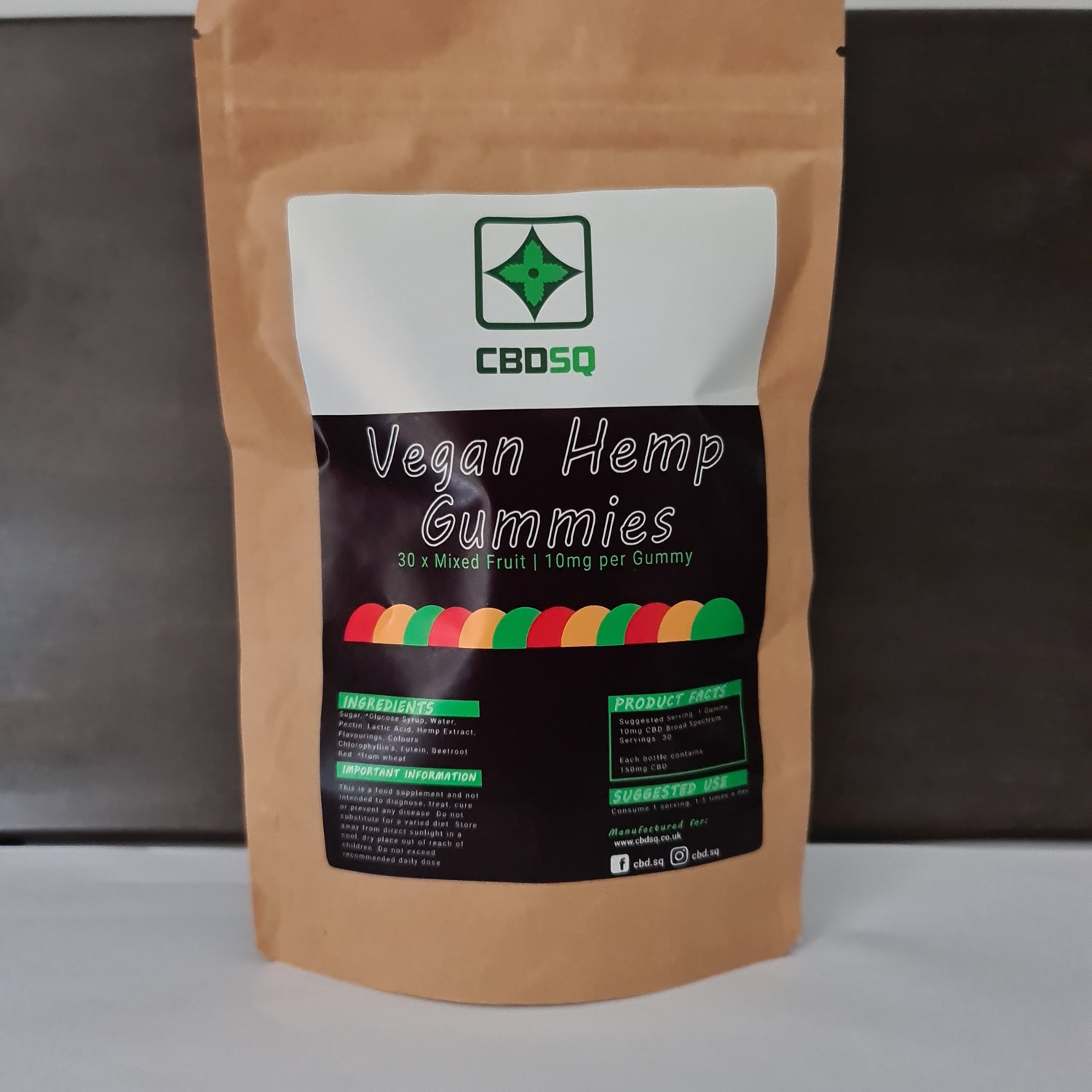
A complete guide to CBD
Share
CBD has been touted for its many benefits in the past few years, appearing in beauty and personal care products, on cafe menus, and on the shelves of national chain stores. In fact, it’s now more accessible than ever. The CBD market is currently valued around £590 million, and is expected to surpass £22 billion by 2020, according to research firm The Brightfield Group.
Even before CBD became a cultural buzzword, it was prized by wellness enthusiasts and health experts for its vast all-natural therapeutic properties.
But what exactly is CBD, and what does it do? Here is our definitive guide to everything you need to know about the crop that’s taking over the world.
CBD – what is CBD?
CBD, officially known as cannabidiol, is one of the most prominent cannabinoids present in the Cannabis genus of plants. Cannabis plants have three strains—Sativa, Indica, and Ruderalis—some of which are further differentiated as marijuana or hemp. The main difference between the two is that hemp only stems from the Sativa species, while marijuana can come from either Sativa or Indica strains. Marijuana plants contain higher concentrations of tetrahydrocannabinol (THC)—the cannabinoid that produces the “stoner’s high.”

CBD is classified as hemp, meaning there’s 0.3% THC or less present in the compound. Marijuana, in contrast, can best be described as any cannabis derivative containing 0.3% THC or greater. CBD is legal as long as it is hemp-derived and falls within the limits on THC.
CBD has powerful non-psychoactive properties (meaning it doesn’t get you high) that make it ideal for medical use. However, uses range along a spectrum from health to wellness to recreation.
When, How, And Why To Take CBD
Since CBD is non-psychoactive, it does not greatly affect or impair mental ability throughout the day. Potential side-effects are rare, but can include mild lethargy or a suppressed appetite.

CBD can be ingested via capsules or tinctures, vaporized, or used topically. The most potent way to take CBD is to ingest it—but vaporizing may be felt more quickly. A 2018 study that surveyed CBD users across the United States found that a majority of users prefer to take cannabidiol sublingually, or orally.
The same study found that almost 62% of those surveyed use CBD for medical reasons.
CBD isn’t a cure-all, but its ability to ease certain symptoms of several physical and mental illnesses are felt by those who use it. Among the more common uses for CBD are to help treat anxiety, cancer, seizures, PMS, stress, migraines, and depression—to name a few. Additionally, CBD is often considered a sleep aid since it helps ease some of these conditions that commonly interfere with sleep patterns.
While medical cannabidiol research is still in the early stages, there are numerous testimonials from health and wellness practitioners, as well as individuals and patients, that are decidedly pro-CBD.
To determine which dose and product is right for your needs, always consult a medical professional before trying a new supplement.
The Endocannabinoid System: Your Highway to CBD
The individual components of the cannabis plant, including THC and CBD, were discovered and studied over the early to mid-1900s, but it wasn’t until the 1990s that scientists truly connected the dots on how cannabinoids interact with the body.

The discovery of anandamide, a neurotransmitter and endogenous cannabinoid with a structure similar to THC, was a turning point for scientists. In 1992, Dr. Raphael Mechoulam, one of the scientists responsible for much of the 20th century cannabis research, discovered that anandamide was part of a larger system in the body. Known as the endocannabinoid system, this network consists of powerful endocannabinoid receptors that bind with cannabinoids and allow the compounds to enter into the bloodstream.
Since then, knowledge of the endocannabinoid system, how cannabinoids affect the body, and the impact CBD can have on illnesses has grown at an exponential rate.
A 2006 study published in the The American Society for Pharmacology and Experimental Therapeutics synthesized everything scientists knew about the endocannabinoid system since its discovery. This included key findings from neural research and significant results from clinical trials across multiple categories spanning pain and inflammation, gastrointestinal disorders, and musculoskeletal disorders.
After looking at such a large cross-section of research, scientists concluded the future of cannabinoids to be overwhelmingly positive, indicating significant therapeutic uses for CBD.
Healing properties of CBD
Like many other cannabinoids, CBD has great potential that can be used in a variety of areas. However, when it comes to medicinal use, CBD beats the hell out of its hemp relatives. Constantly conducted research in this matter has proved that this compound has a positive effect on reducing such conditions as:
- Anxiety. CBD, according to many of the results of the analyses, seems to have anti-anxiety properties.
- Inflammations. Multiple scientific reviews have noted that CBD seems to reduce inflammation in different parts of the body. It seems to block the receptors involved in the inflammation process.
- Pain. Studies show that CBD can be used as a painkiller. "Sativex", an FDA-approved, THC- and CBD-based treatment for people with multiple sclerosis, reduces pain significantly.
- Seizure disorders. This is one of the most well-documented benefits of CBD. Recently, an FDA-approved medication called "Epidiolex" has appeared on the US market. This CBD-based medication is used to treat certain rare, severe seizure disorders.
In addition to the proven benefits mentioned above, limited research suggests that CBD can also treat or prevent conditions such as:
- Acne. CBD not only reduces inflammation – including skin inflammation – but can also regulate excessive sebum production, which greatly improves skin condition.
- Addiction. Some research suggests that CBD can be used to treat addiction, e.g. nicotine addiction.
- Cardiovascular disease. According to some studies, cannabidiol lowers blood pressure and prevents some heart disease.
- Depression. There is some evidence suggesting that CBD may be able to reduce depression by changing the way our bodies interact with serotonin, a mood-lifting chemical.
- Sleep disorders. A 2019 study suggested that CBD can reduce anxiety-related insomnia. However, A 2014 study showed it doesn’t seem to make you groggy, In fact suggested that CBD could actually promote wakefulness.
CBD also seems to treat some diseases in dogs, such as osteoarthritis and seizure conditions. That is why more and more pet owners use CBD for their dogs.
While some of the benefits of CBD are well-documented and proven, CBD may also have other benefits that still need confirmation by further research. Therefore, the list of potential uses of CBD to treat or prevent certain conditions is still open. This proves that cannabidiol as a medicinal substance still has a lot to offer us.
What to use CBD for?
Let’s look at the conditions where CBD can bring the most benefits.
Epilepsy
This disease is one of the oldest known neurological diseases. Therefore, it would seem that all possible treatments are already known in this regard. As it turns out, CBD has huge potential here. This is confirmed by numerous clinical trials, including Lennox-Gaustaut Syndrome or Dravet Syndrome. According to their results, most of the patients felt a significant improvement while taking appropriate doses of cannabidiol.
Migraine
Headaches are currently one of the most common complaints. It is estimated that migraines affect about 4-20% of all people. CBD, in turn, has been used for years as an analgesic and an anesthetic. It turns out that cannabidiol also relieves migraine headaches.
Insomnia
As many as 30-50% of adults report insomnia problems in various research. CBD may come to the rescue for those who have not slept in a long time. Research confirms that CBD increases sleep time and prolongs the REM phase. In turn, the calming properties of CBD relax the mind and increase melatonin secreted naturally in the body. Therefore, the improvement in the quality of sleep and life can be huge.
Irritable Bowel Syndrome (IBS)
This unpleasant condition affects up to 20% of the population. Until now, people struggling with IBS had to somehow deal with the persistent symptoms of this disease entity. Fortunately, it has been discovered that CBD can affect the mechanisms of the digestive system. The way CBD works is often similar to that of conventional medicines commonly used – even probiotics, which is why cannabidiol has the chance to be used to soothe the symptoms of this condition as well.
Schizophrenia
Over the years, many substances have emerged that are increasingly effective in treating this unpredictable disease. Unfortunately, their use is often associated with unpleasant side effects. CBD therapy can bring a lot of good in this field. Cannabidiol has an antipsychotic effect and can be used as an adjunct therapy.
Parkinson’s disease
CBD has a significant impact on the pathophysiology of Parkinson’s disease, so it could be used in the future as a drug in the treatment of this disease. Clinical trials show that this topic is quite serious and developmental. Its seriousness may also be demonstrated by the fact that pharmaceutical companies are interested in cannabidiol.
Chronic pain
From a physiological point of view, the endocannabinoid system has the potential to affect pain-related processes. So all substances that affect it can modulate pain. One of these substances is cannabidiol, which is increasingly appreciated for its healing properties of this issue.
Cancer
It is known that CB1 and CB2 receptors are present in the cells of our body’s tissues. Their presence in cancerous tumors was also observed. It has been proven that in breast cancer, prostate cancer, hepatocellular carcinoma and melanoma, these receptors are more common than in healthy patients. Therefore, CBD may play a significant role in cancer therapy.
Alzheimer’s disease
Unfortunately, there is currently not much known about the relationship between the endocannabinoid system and human Alzheimer’s disease. However, some observations suggest that this relationship may occur and CBD may have a significant impact on the mechanism of this disease.
Depression and neurosis
Anxiety disorders and depression are diseases that significantly limit the daily functioning of patients. However, the results of studies on the effectiveness of CBD in the treatment of neuroses and depression are very promising.
Multiple sclerosis
As it turns out, CBD can be effective in relieving the symptoms of multiple sclerosis such as sleep problems, spastic muscle tension, depression and urination problems. Therefore, the use of cannabidiol can positively affect the quality of life of people suffering from this disease.
CBD use
Is taking CBD safe?
The fact that cannabidiol is generally safe and well tolerated by humans is confirmed by many studies. Side-effects associated with CBD intake are rare and usually have a fairly mild course. We are talking primarily about nausea, diarrhea, changes in appetite or fatigue.
Studies show that CBD may interact with some medicines, so it’s important to consult your doctor for the inclusion of CBD in your daily life. CBD may affect your body’s ability to metabolize certain drugs.
In terms of safety, the most important thing is the choice of the highest quality products, such as CBD oils from Eir Health, which, compared to the competition, present the highest quality standards. Many brands mislead consumers by producing products with many additives and a small amount of cannabinoids.

